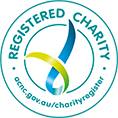Frequently Asked Questions
Yes. You are not automatically a brain donor if you are a registered organ donor. Brain donation for research requires separate and specific consent from organ donation for transplantation (such as kidney and liver).
You may register to be both an organ and tissue donor for transplant and a brain donor for research. At the time of death, medical staff will assess whether you are a suitable candidate to donate organs for transplantation. If so, organ donation will take place prior to brain donation. However, most organ donors are declared brain dead due to severe brain injury that caused death. This means the brain may not be suitable for research purposes. In cases where a natural death occurs at home or in a nursing home, and organs are not kept alive for transplantation, the brain can be retrieved (ideally within 24 hours of death) and used for research purposes.
To become a Brain Donor for MS research, register with the MS Australia Brain Bank and you will be sent further information and a state-specific consent form to complete.
To register for the Australian Organ Donor Register, go to www.medicareaustralia.gov.au or call 1800 777 203.
The MS Australia Brain Bank only acquires tissues of the central nervous system for MS research. The remainder of the body is returned to the donor’s next of kin who is responsible for making the usual funeral arrangements.
If you choose to donate your entire body to a university for science/medical education, separate arrangements need to be made with the relevant university’s anatomy department. Since body donor programs usually require an intact body for embalming, it is not possible to be a whole body donor and a brain donor for MS research at the same time. It is up to the donor to decide whether they want to donate their brain for furthering MS research or to donate their entire body in the name of science.
To be eligible to donate your brain to the MS Australia Brain Bank, you must not have any known infectious diseases.
To register as a Brain Donor, you must complete and return your state-specific Consent Form, which can be obtained by registering your interest online, calling 1300 672 265, or posting us the hard copy registration form attached to the MS Australia Brain Bank Brochure.
Your senior available Next of Kin is the first person who, in the following order of priority, is reasonably available:
- spouse (including de facto partner)
- adult offspring
- parent (including step/adoptive parent)
- sibling
Although it is not a legal requirement to have a Next of Kin signature on the Brain Donor Consent Form if you have given your own pre-consent, co-signature by the Next of Kin ensures that they are supportive of your decision and will act on your behalf to fulfil your wishes of donating your brain for MS research.
Consent and cooperation from your Next of Kin is critical for a successful brain donation to take place quickly and smoothly. It is important for your family to understand your commitment to becoming a Brain Donor and that they support your decision, since they are the ones who will make sure your wish is fulfilled. We will always respect the family’s wishes if they refuse or withdraw consent for brain donation at the time of death, regardless of the deceased’s own pre-consent. This practice is consistent with the hospital position regarding organ donation for transplant.
Provided that you can give your own informed consent by signing the Brain Donor Consent Form, brain donation can proceed without a Next of Kin. If you don’t have any living spouse, child, parent, or sibling, you may ask a friend or other distant relative to co-sign your Brain Donor Consent Form and to notify the Brain Bank at the time of your death.
A new senior available Next of Kin can be appointed when necessary by updating their details using our Donor Information Update Form. For example, if the spouse of a registered Brain Donor passes away, the donor’s son or daughter will become the new senior available Next of Kin. Until an update is received, all previously completed forms remain valid dated documents.
If you wish to donate your brain but are unable to sign your name on the consent form, donor self pre-consent can also be given in the form of an audio and/or a visual recording or your senior available Next of Kin can provide their consent for your brain donation by signing a Next of Kin Consent Form.
If a donor cannot give their own consent and have no Next of Kin (spouse, adult child, parent or sibling), they cannot donate their brain. Under current legislation, in-law relations, nieces, nephews, and grandchildren, etc., cannot consent to donating organs of their relatives. Similarly, a patient’s “Power of Attorney” cannot consent to brain donation, unless the person with Power of Attorney is a spouse, adult child, parent, or sibling of the donor.
Although timing and distance can be an obstacle to retrieving tissue within 24 hours, in many cases we may be able to arrange for brain donation to be performed at a nearby regional hospital so this should not deter you from registering as a Brain Donor.
However, due to limited resources and logistical problems, brain donation may not be able to take place in some parts of the Northern Territory and Northern Queensland. The Brain Bank Coordinator will inform you if your location is outside our collection area.
Yes, you remain a registered Brain Donor even if you move interstate. The MS Australia Brain Bank is a national donor program and our collaboration with other Brain Banks allows tissue to be retrieved from most areas within Australia. Please contact us with your new address and a new Consent Form specific for your new state of residence will be sent to you to complete if necessary.
At this time, the MS Australia Brain Bank is only able to retrieve brains from within Australia. Brain Donor programs do exist overseas and you may register as a donor with other Brain Banks around the world. You can find a list of Brain Banks around the world at www.brainnet-europe.org
Yes, you may withdraw your consent to donate your brain at any time by returning the Withdrawal of Consent Form in your Brain Donor Information and Consent Pack. Alternatively, contact the MS Australia Brain Bank Coordinator. There are no costs involved in withdrawing from the Brain Bank, and no reasons need to be given. All information collected to date will be destroyed and details deleted from our database. Withdrawal of consent will in no way harm your relationship with your medical practitioners or with MS Australia.
No, you do not need to mention that you are a Brain Donor in your Will. The Brain Donor consent form is sufficient for brain donation. The most important thing to ensure a successful brain donation is that your family is aware and is supportive of your wish, and that the Brain Bank be notified of a donor’s death as soon as possible.
No, brain donation is organised and performed as rapidly as possible after death and would not delay or interfere with the normal course of events associated with a funeral, cremation, or burial. The brain donation procedure does not affect the ability to have a viewing or open casket funeral as the brain is removed in such a way as to minimise visible marks. Brain donation also does not incur any additional costs for the family.
No, you do not need to notify the Australian Organ Donor Register that you have signed up with the MS Australia Brain Bank. At the time of death, medical staff will assess whether you are a suitable Organ Donor. If so, organ donation will take place prior to brain donation, if the brain is deemed useful for research at that time.
We strongly encourage patients to register as a Brain Donor and give consent for post-mortem brain donation as early in life as possible. This is because important medical information needs to be collected during the life of the patient. In additon, potential infectious disease information is collected to ensure the safety of researchers and MS Australia Brain Bank staff. “At death donations” may be considered in exceptional circumstances on a case by case basis. Contact your Brain Bank Coordinator as soon as possible.
A copy of the donor’s neuropathology report, which confirms the donor’s final diagnosis, can also be made available free of charge to family members and doctors on request. However, these reports will contain complex anatomical and pathological terminology and we recommend that you ask your doctor what these terms mean.
Tissue samples provided to researchers for MS studies are assigned a unique code such that the donor cannot be identified. Research outcomes are often published in peer-reviewed medical journals which usually report results from a group of patients. It is therefore not possible to trace which studies a particular donor’s brain has been a part of.
The donor’s family can subscribe to the MS Australia mailing list below to receive regular updates on MS research progress.
No. The MS Australia Brain Bank assumes all financial responsibilities for tissue collection, including transportation fees and the cost of neuropathological examination. Normal funeral arrangements remain the responsibility of the family.
Yes, researchers also need ‘control’ brains without MS and brains with other neurological conditions to compare with MS brains in order to find out what goes wrong in MS brains. People without MS can also sign up to become a brain donor.




